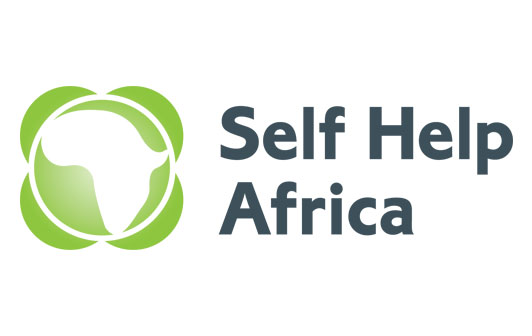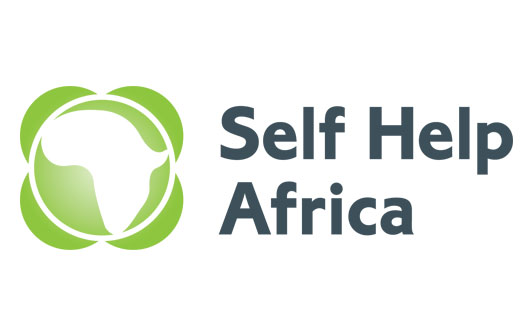
Self Help Africa

Self Help Africa unites global teams in the fight against hunger and poverty with Salesforce
Helping communities in developing countries escape poverty requires more than just the distribution of people’s generous donations. It requires a thorough understanding of the social, political, and natural landscape. It requires a long-term solution not a short-term fix. It requires years of dedication and support. And Self Help Africa is committed to fulfilling all these requirements.
The organisation provides a broad range of programmes – from teaching families about nutrition to helping them develop good farming practices and businesses – across nine African countries, including Ethiopia, Zambia, Kenya, Malawi, Burkina Faso and Uganda. “We want to help people free themselves from poverty and hunger for good,” said Mark Ireland, Head of Region. “Distributing donations of food won’t resolve the long-term problems; we need to get smarter about how we help communities in less-developed countries so they can help themselves in the years to come.”
A single solution with multiple uses
To support its vast spectrum of services, Self Help Africa operates a network of offices in Ireland, the US, and the UK, with hundreds of field workers based across sub-Saharan Africa. “We generate a lot of information across multiple locations and our team need a single source of the truth, so they can maximise the time they spend supporting our programmes and local communities,” said Ireland.
Salesforce has provided Self Help Africa with this single source of the truth since 2008. The platform supports a range of key processes – from fundraising, campaigning and programme management, to tracking expenses, holiday requests, and purchases. “By replacing disparate servers, spreadsheets, emails, and faxes with a central solution, we’ve been able to join up not only our processes, but also our people,” said Ireland. “Now, each programme has a record in Salesforce that we can attach everything from budgets, contracts, progress reports, income secured through to beneficiary data and time logs.”
Boosting fundraising with effective campaigns
Maximising the fundraising potential of every campaign is paramount to the success of Self Help Africa. With the Nonprofit Success Pack (NPSP), the charity’s leaders can track the fundraising pipeline and match this to the budget to identify any gaps. “To develop an opportunity into an active programme we need to make sure we’ve secured the funds,” said Ireland. “If we fail to hit fundraising targets we could miss the opportunity to help more people.”
If a gap is highlighted, the marketing team can quickly send out mass or personalised appeals to the organisation’s 30,000 supporters.

“Salesforce makes campaigning simpler and more effective,” said George Jacob, Head of Communications at Self Help Africa. “We can drop our artwork into a Salesforce template, and then tailor the content and recipient list to make communications more relevant to our donors.”
By tracking open rates in Salesforce, Jacob and his team can pinpoint the most successful campaigns for different demographic groups. “We now have hard numbers that confirm if our messaging is working or not,” said Jacob. “Using standard templates and processes has enabled the team to devote more time to building relationships with key donors.”
Demonstrating impact to supporters
When an opportunity arises to develop a new programme, a record is set up in NPSP to enable seamless information sharing and team collaboration. Individual donor records can be linked to each programme, which makes it easy to run progress reports for key sponsors; by linking contacts and processes to each programme, project management is simpler and more efficient.
“Salesforce, helps us track the impact our programmes are having and share this with our supporters,” said Ireland. “We look at success factors, such as nutrition, food production, and equality within individual families and communities. For example, our Irish Aid Livelihood Development Programme supported 16,000 poor households over five years in Mbala and Luwingu districts in Northern Zambia, with a particular focus on women and vulnerable groups. It achieved some very positive trends in nutrition outcomes; there was a reduction in stunting levels in children less than 18 months, down from 40% to 31% and there was a huge shift from severe stunting to moderate stunting in children less than 18 months, down from 21% to 11%. This was one of the first projects where we used Salesforce to manage beneficiary surveys.”
Encouraging greater global citizenship
Demonstrating success stories in development and humanitarian work is hugely important. Self Help Africa leads the consortium Worldwise Global Schools (WWGS), which funds development education activities at secondary-level across Ireland. “We want to encourage global citizenship at an early age,” said Shay Downey, ICT Manager at Self Help Africa. “We provide grants and training for secondary schools to make young people aware of social justice and how they can contribute.”
Schools can apply for grants to support their global citizenship initiatives via Salesforce Experience Cloud for Nonprofits. As Downey explained: “With Experience Cloud, we’ve created a self-service community for schools to submit and track their grants. It makes things simpler for everyone.”
Driving stronger growth and outcomes
The management team at Self Help Africa also uses Salesforce to help bring on board other non-profit organisations. “Many charities are several years behind big corporations in terms of technology; Salesforce helps us stand out from the crowd,“ said Peter McDevitt, Chief Financial Officer. “This has encouraged other non-profit organisations to join forces with us to deliver even better outcomes.”
Since it first deployed Salesforce, Self Help Africa’s revenue has grown from €7 million to €20 million per annum. And it doesn’t plan to stop there – the charity’s leaders want to hit €40 million by 2023.
“We want to keep boosting our resources and revenue, so we can do more on the ground to help families in Africa,” said McDevitt. “Salesforce has been – and will continue to be – a game changer for us.”